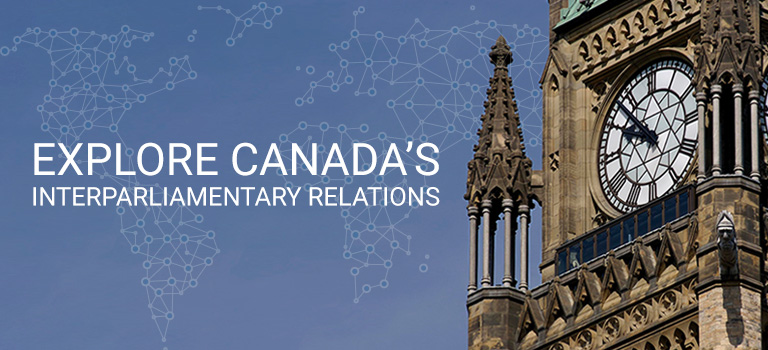Interparliamentary Activities and Reports
Refine your search
Results: 871 - 880 of 1112
February 3, 2021
CPA UK Virtual Caribbean Regional Workshop on Human Trafficking, Forced Labour and other Contemporary Forms of Exploitation: Your Role as Parliamentarians and Parliamentary Officials
By videoconference
Canadian Branch of the Commonwealth Parliamentary Association (CCOM)
The Caribbean Workshop on Human Trafficking, Forced Labour and Contemporary Forms of Exploitation, organized by CPA UK, took place online from February 2 and 3, 2021. Parliamentarians and officials taking part in the workshop represented the UK, Barbados, Belize, Guyana, Jamaica, St Vincent & Grenadines, Trinidad and Tobago and Virgin Islands (UK). The programme explored topics such as child exploitation, debt bondage and the role of the hospitality sector. There was also opportunities for elected representatives to discuss their role in tackling these issues, through debates in parliament, strengthening legislation, providing scrutiny and educating constituents. With the other participants, Senator Julie Miville-Dechêne was invited to discuss the role parliamentarians and officials can play towards eradicating human trafficking, forced labour and other contemporary forms of exploitation. Senator Julie Miville-Dechêne talk about the bill she presented to the Senate in February 2020, Modern Slavery Act, currently numbered S-216.
January 29, 2021
53rd Meeting of the Board of Directors of ParlAmericas
By videoconference
Canadian Section of ParlAmericas (CPAM)
• The Honourable Senator Rosa Galvez, Vice-Chair of the Canadian Section of ParlAmericas (CPAM) and Treasurer of the Board of ParlAmericas Corporation;
• Marc Serré, Member of Parliament, Chair of CPAM, Canada’s representative on the ParlAmericas Board of Directors and Chair of the Board of ParlAmericas Corporation; and
• Randy Hoback, Member of Parliament, Member of CPAM and Member of the Board of ParlAmericas Corporation.
At this meeting, Mr. Serré led the discussion regarding the decisions to be made by the ParlAmericas Corporation Board. During this discussion, Senator Galvez presented the 2020 ParlAmericas audited Financial Statements, which were approved.
The 53rd Meeting of the Board of Directors enabled members to approve the calendar of activities for 2021 and to discuss the events to be organized for ParlAmericas’ 20th anniversary. The meeting concluded with an exchange of information on recent initiatives related to ParlAmericas’ work spearheaded by various parliaments or legislators in their respective countries. In this regard, Senator Galvez and Mr. Serré presented the activities of CPAM’s Sub-committee on Open Parliament.
January 28, 2021
Commonwealth Women Parliamentarians (CWP) Steering Committee - Canadian Region
By videoconference
Canadian Branch of the Commonwealth Parliamentary Association (CCOM)
January 26, 2021
Meeting with the European Parliament's Delegation responsible for Relations with Canada
By videoconference
Canada-Europe Parliamentary Association (CAEU)
January 22, 2021
Working group on the revision of the Statutes of the APF
By videoconference
Canadian Branch of the "Assemblée parlementaire de la Francophonie" (CAPF)
January 22, 2021
285th Session of the International Executive Committee of the IPU (Second sitting)
By videoconference
Canadian Group of the Inter-Parliamentary Union (UIPU)
Results: 871 - 880 of 1112 — Page: 88 of 112


